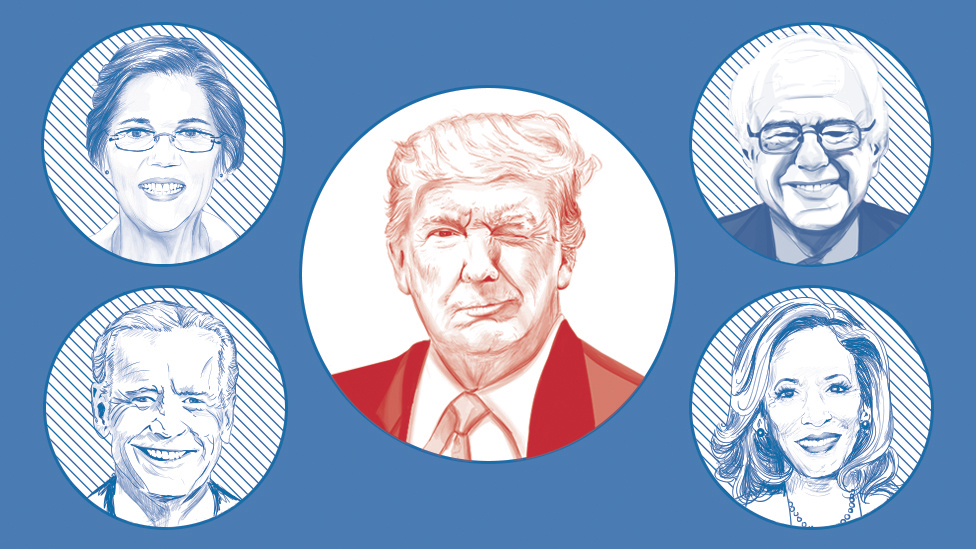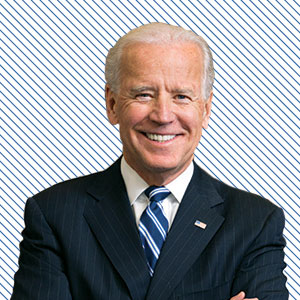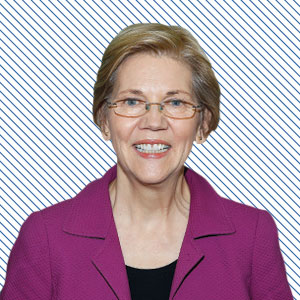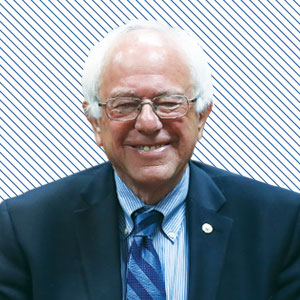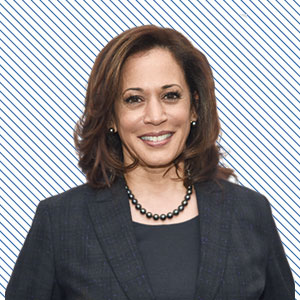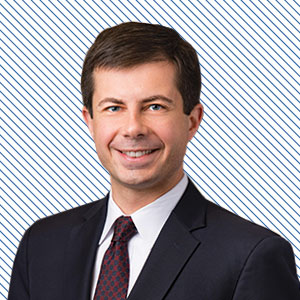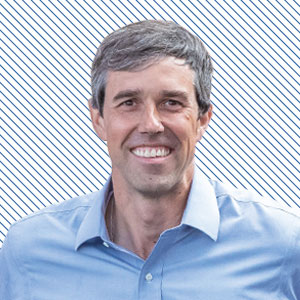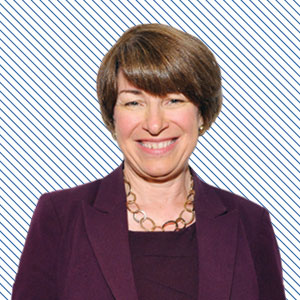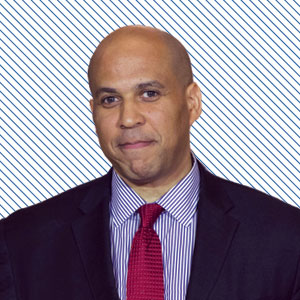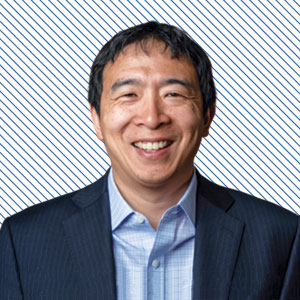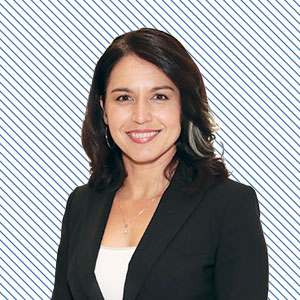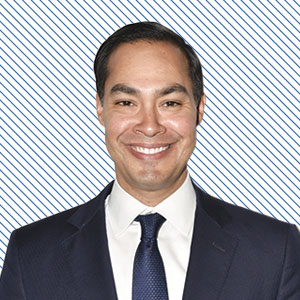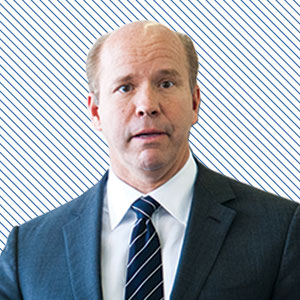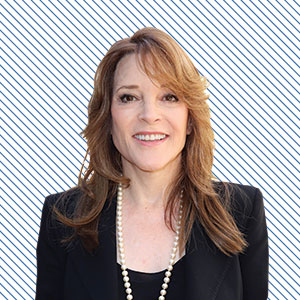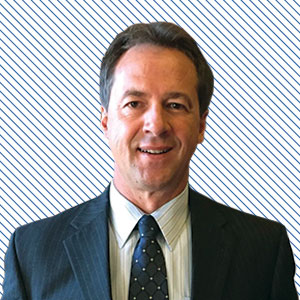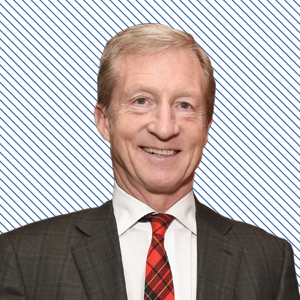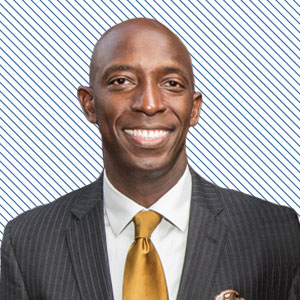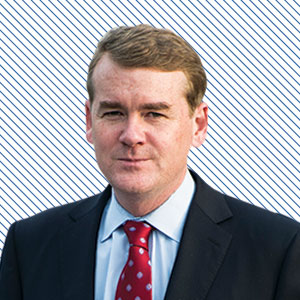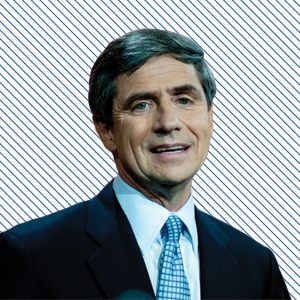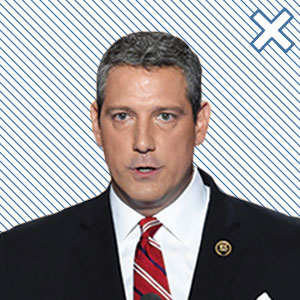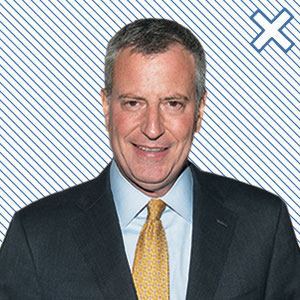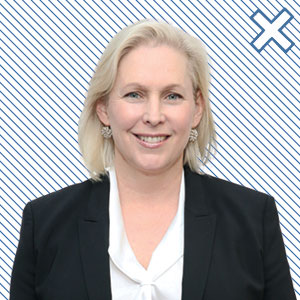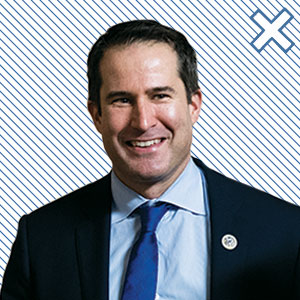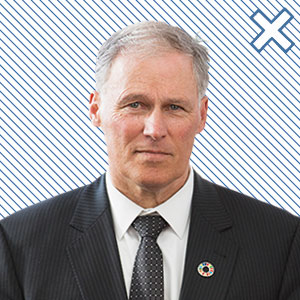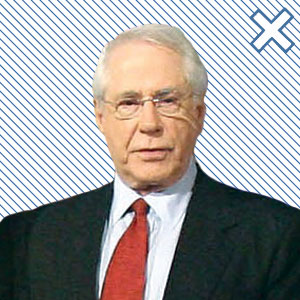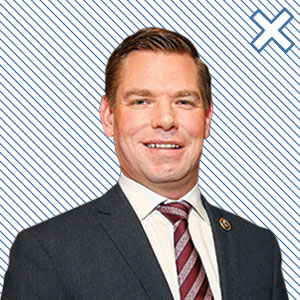Who will take on Trump in 2020?
Election day is still more than a year away, but the race to become the Democratic challenger to Donald Trump is already well under way.
Joe Biden and Bernie Sanders have thrown their hats into the ring, but most of the other candidates are relatively unknown outside the Washington DC bubble.
The group features the usual mix of senators and other members of Congress, but this year it also includes a record number of women, a gay mayor and a spiritual counsellor.
Here’s our rundown of all the major candidates that are running, including a few wildcards, with a take from the BBC’s Anthony Zurcher on each.
Who will take on Trump in 2020?
Joe Biden
Barack Obama picked Joe Biden to be his running-mate in 2008 because of his supposed folksy appeal to white working-class and middle-class voters – and that’s exactly why he could be a formidable candidate in 2020.
The former Delaware senator unsuccessfully sought the Democratic presidential nomination in 1988 and 2008 and declined to run in 2016 after the death of his son from brain cancer.
His long voting record, which includes backing the Iraq War in 2002 and sponsoring a controversial anti-crime bill in 1996, has already drawn criticism from some of his more liberal opponents.
He has sharply criticised Donald Trump for “trashing American values”, but he’s seen as a Democrat who could work with Republicans.
Anthony’s take:
Joe Biden is a front-runner in the Democratic presidential contest, if not the front-runner. He has near universal name recognition, high approval ratings, and the potential to raise vast amounts of campaign money through traditional Democratic donor networks.
Of course, so did Hillary Clinton in 2015 – and we all know how that turned out.
Mrs Clinton’s key weakness was her lengthy time in the public eye, leaving a long record for her opponents to pick apart, and binding her to a status quo establishment many Americans had come to distrust.
Mr Biden shares those challenges in spades, and he faces a much more diverse and talented primary field than Mrs Clinton did.
There are also questions about whether the 76-year-old candidate has the stamina to maintain a lengthy and arduous campaign schedule.
Elizabeth Warren
Elizabeth Warren has been a favourite of the progressive left since she emerged on the political scene to push for tougher regulation of the financial sector after the 2008 economic crash.
During her time in the US Senate she became known for her hard-nosed interrogations of Wall Street executives and as an outspoken critic of income inequality.
That loyal base may be enough to rise to the top of a fractured Democratic presidential field – but she will probably have to pry some supporters away from Bernie Sanders, who will be competing with her for progressive hearts and minds.
Anthony’s take:
She’s got financial chops and is building a formidable political operation, but professorial Massachusetts liberals are a tough sell to the rest of the country.
Progressives will have to decide if they find her promise of economic reform more attractive than Bernie’s revolutionary zeal.
Bernie Sanders
The Vermont senator would be 79 on election day, but he’s decided to make another run at the top prize.
His long-shot bid for the Democratic presidential nomination in 2016 captured the hearts of American progressives, and he has been packing arenas with loyal supporters ever since.
But former allies Elizabeth Warren and Tulsi Gabbard are both also running this time round and could carve off some of his support.
Anthony’s take:
Bernie Sanders is a victim of his own success.
In 2016 he pulled the Democratic Party to the left, but it means he’s not as unique a candidate in 2020.
He has the advantages of name recognition, fund-raising and national campaign organisation, but his opponents won’t avoid attacking him the way Hillary Clinton did three years ago.
His days as a plucky underdog are over.
Kamala Harris
Kamala Harris is the kind of Democrat who could stick around and prevail in what is sure to be a gruelling nomination battle.
She is from California, which is rich in both primary delegates and fundraising dollars. As a woman, and from an ethnic minority, she is well positioned to capitalise on her party’s growing diversity.
She has one of the most liberal voting records in the US Senate at a time when Democrats are leaning to the left, but she also has a background as a hard-nosed prosecutor.
That background may end up a vulnerability as well, given that some progressives have criticised her for failing to support California criminal justice reform efforts and pointed to her prosecutorial record as being insufficiently sensitive to the rights of the accused.
Anthony’s take:
She will be tested in the coming months, but she looks and sounds like the kind of fresh-faced candidate that will appeal to a wide range of Democratic constituencies.
If she can post decent showings in the early states of Iowa and New Hampshire, she’ll be well-positioned to emerge from the pack when the primary voting moves south and west.
Pete Buttigieg
Pete Buttigieg isn’t the only millennial in the 2020 race but he is positioning himself as a voice for the young.
The mayor of South Bend, Indiana, is a military veteran and the only openly gay presidential hopeful.
He’s proven he can win locally in a conservative state and mounted a surprisingly strong bid for chair of the Democratic National Committee in 2017.
Anthony’s take:
The march of time ensures millennials will run things someday.
A Buttigieg presidency seemed like a long shot at first, but he’s fundraising like a top-tier candidate.
He’ll have to diversify his support – including expanding his appeal to black voters – if he wants to win the nomination, however.
No matter how his campaign ends up, his candidacy is a sign of things to come.
Beto O'Rourke
Robert “Beto” O’Rourke came up short in his 2018 bid to oust Texas Senator Ted Cruz but it’s impressive he pushed him so close in a traditionally red state.
And more importantly, he drew big crowds and raised money like a national powerhouse.
He may not have Latin roots but Mr O’Rourke is fluent in Spanish and leans heavily on his “Beto” nickname – a common contraction of Roberto – which he picked up as a child in El Paso.
His passionate delivery along with his good looks and background as a skateboarder and a punk rocker have endeared him to liberals across the country.
Anthony’s take:
His political resume is thin, but the three-term congressman developed a devoted national following with his ultimately unsuccessful 2018 Texas Senate bid.
Although his low-key presidential campaign launch has underwhelmed some, he’s one of the few on the left who has shown he can energise big crowds of supporters.
That’s not the only measure of political viability, but the left may want a candidate who matches the kind of engagement Donald Trump engenders on the right.
Amy Klobuchar
Amy Klobuchar may not be a household name, but the three-term Minnesota senator has shown the ability to win votes in the kind of Midwestern battleground state that Donald Trump appealed to in 2016.
Another former prosecutor, Ms Klobuchar won praise for her cool competence in the heated confirmation hearings for Supreme Court nominee Brett Kavanaugh.
She has long prided herself in being able to “disagree without being disagreeable”, giving her a reputation for being “Minnesota nice”.
But the initial buzz around her campaign has been dampened a bit by allegations that she has been abusive toward her staff.
Anthony’s take:
She offers a steady, sensible political outlook that could attract the majority of Democratic voters who are more interested in electability than ideological purity.
If Biden eventually falters, she will be in the thick of the fight for the support of moderate Democrats.
Cory Booker
Cory Booker is a prodigious fundraiser who knows how to work Wall Street donors.
His background reflects the diversity of the modern Democratic Party and his time as mayor of blue-collar Newark gives him a grounding to the plight of the underprivileged.
The New Jersey senator has an undisputed talent for public speaking, making him one of the more engaging candidates on the stump.
Many on the left don’t trust him, however. They view his big-money ties as a liability and haven’t forgotten his 2012 defence of Republican Mitt Romney’s venture-capital background during that year’s presidential campaign.
Anthony’s take:
Mr Booker will be pressed to convince Democrats he’s the one to take them to the promised land.
He has some of that Obama 2008 hope-and-change magic, but his silver tongue will get quite a workout.
Andrew Yang
Yang is a technology entrepreneur who should be well prepared seeing as he announced he was running for president back in November 2017.
He graduated from Columbia Law School and spent more than a decade working on several start-up companies before being appointed Ambassador of Global Entrepreneurship in 2015 by the Obama administration.
He’s proposing that the US government pay a $1,000-a-month “freedom dividend” to all Americans between the ages of 18 and 64 as a form of universal basic income to cushion against fewer jobs due to increased automation.
Anthony’s take:
With his freedom dividend proposal, Andrew Yang is a “one big idea” candidate. He’ll go as far as his idea takes him.
A successful campaign will be if he gets the other candidates to consider the merits of a universal income.
Tulsi Gabbard
Tulsi Gabbard, born in American Samoa and of Polynesian descent, is a difficult candidate to characterise.
Most of the Hawaii congresswoman’s views fit firmly in the progressive camp and she was an early and outspoken supporter of Bernie Sanders’ 2016 presidential campaign.
The Iraq War veteran has drawn criticism, however, for meeting with Bashar al-Assad in January 2017 – after the Syrian president had been accused of repeatedly using poison gas on civilian populations.
The daughter of a socially conservative politician and activist, Ms Gabbard may also draw the ire of Democratic voters for her past criticism of “homosexual extremists” and opposition to abortion rights and gay marriage.
She made history in 2012 when she became the first Hindu member of the US Congress.
Anthony’s take:
If Democrats are looking for a young, charismatic iconoclast – even if it means supporting someone whose views don’t always match their own – then Ms Gabbard might have a shot.
Julian Castro
It wasn’t long ago that Julian Castro would have been considered a top-tier candidate for the Democratic presidential nomination.
He was a well-regarded mayor of San Antonio, landed the keynote address at the 2012 Democratic National Convention and went on to a Cabinet position in the Obama administration.
That was then, however, and this is now.
Castro has an uphill climb to get past better-known candidates who are still in elective office. He’s shown sharp elbows in the debates, however, which has helped get him some much-needed attention.
Anthony’s take:
His resume is solid and his Hispanic heritage is helpful, but – while he has improved over the course of the campaign – his charismatically challenged speaking style is never going to light up a crowd.
He’s the kind of politician who seems engineered in a laboratory for the vice-presidential spot.
John Delaney
John Delaney was officially the first entrant into the 2020 Democratic presidential field when the Maryland congressman announced his candidacy in July 2017.
The former tech entrepreneur has a platform that focuses on jobs, education and infrastructure and a return to bipartisan co-operation.
Anthony’s take:
Mr Delaney’s call for a return to bipartisan co-operation is going to be a tough sell in today’s sharply divided political environment.
The three-term Maryland congressman has logged the hours in Iowa, which hosts the first nominating contest.
He’s got a chance if accumulated face time translates into votes. (It doesn’t.)
Marianne Williamson
Marianne Williamson is a best-selling author, charity organiser and spiritual adviser who counts Oprah Winfrey as her most famous follower.
Her bid to become president isn’t her first foray into politics – she tried and failed to win California’s 33rd congressional district back in 2014. She spent nearly $2m and finished fourth.
Anthony’s take:
By focusing on emotion and spirituality, Williamson is running a campaign vastly different from any of her competitors.
It may not win her many votes, but it’s allowed her to stand out from the crowd.
Steve Bullock
Steve Bullock, the governor of Montana, entered the crowded Democratic presidential contest with a strong emphasis on his record running a red state.
He is the only Democratic hopeful elected to statewide office in a state President Trump carried in 2016.
In a kickoff video dubbed “Fair Shot” posted online, the 53-year-old leans heavily on progressive accomplishments notched in Montana since he was elected governor in 2012, while also highlighting the need to reach deals with Republicans.
Anthony’s take:
Steve Bullock took his time getting in the race – a risky move for a little-know governor from a small state that’s distant from the major US population centres.
He’s got a folksy, rural charm that could appeal to Democratic voters looking for a candidate with middle-American appeal, but he will have a lot of catching up to do.
Tom Steyer
Tom Steyer is a hedge-fund billionaire from California who has shifted from environmental advocacy to calls for Mr Trump’s impeachment to a presidential run.
In 2018 he spent more than $100m to support Democratic candidates for the House of Representatives, suggesting he may be willing to invest at least as much – or more – in his bid for the Democratic nomination.
His largess has made political allies across the US, and his grass-roots impeachment organising efforts helped build a million-strong contact list of like-minded voters.
Anthony’s take:
Tom Steyer appeared to close the door on a presidential bid back in January, instead pledging to do whatever it takes to remove Donald Trump from office via the constitutionally outlined impeachment process.
He has changed his mind, which is the kind of luxury afforded a billionaire.
It’s not exactly apparent what path someone like Steyer has to the Democratic nomination. But with a budget limited only by his imagination, if there is even the smallest path he has the resources to bulldoze it clear.
At the very least, he could be a disrupter in the electoral process, free to challenge his opponents to take a more aggressive stand on impeaching the president and push them on environmental issues.
Wayne Messam
Wayne Messam, the 44-year-old son of Jamaican immigrants, focused on the idea of the American dream in the video that launched his campaign.
He became the first black mayor of the southern Florida city of Miramar in 2015 after unseating a 16-year incumbent.
A former star athlete at university, he then went on to open a successful construction company.
Anthony’s take:
Could the mayor of a modest-sized town nestled in the urban sprawl of South Florida be elected president of the United States?
It seems highly unlikely, but such is the nature of US presidential politics these days that even the very unlikely can’t be dismissed as impossible.
Mr Messam will tout his personal story more than his relatively thin political record in hopes that it catches the eye of Democratic voters – particularly those in the South.
Michael Bennet
Michael Bennet, a two-term US senator, is the second Colorado politician – along with former Governor John Hickenlooper – in the Democratic presidential race.
The former head of the Denver public school system, Bennet styles himself as a moderate who has shown he can win elections in a battleground state – a pragmatist who can advance progressive priorities like healthcare, education and equitable economic growth through bipartisan consensus.
Anthony’s take:
As the surge in support for South Bend, Indiana, Mayor Pete Buttigieg has shown, it’s not impossible for a little-known politician to break out onto the 2020 national stage.
That may give Bennet some hope.
He had his own viral moment when he sharply disparaged perennial Democratic villain Ted Cruz from the Senate floor earlier this year.
In a crowded field, it will be a real challenge for a soft-spoken moderate to stand out, however.
Joe Sestak
Joe Sestak is a former Pennsylvania congressman and three-star vice admiral in the US Navy.
He was late to join the race, announcing his campaign at the end of June.
His career in the military spanned three decades. He commanded a carrier strike group during combat operations in Iraq and Afghanistan and served on the National Security Council under President Bill Clinton.
His campaign is focusing on climate change and global policy.
Anthony’s take:
No one was expecting Joe Sestak to launch a bid for the Democratic presidential nomination, and no one is quite sure why he actually did it.
He started late, has little name recognition outside of his homes state of Pennsylvania and hasn’t held elective office in 10 years.
He was once a favourite of the liberal grass-roots after winning an upset in his House of Representatives race, but he failed in two attempts to move up to a Senate seat.
He did knock off the incumbent Democrat in the 2010 primary, which gained him the ire of the Democratic establishment.
The former Navy admiral is going full steam ahead anyway, campaigning heavily in Iowa and counting on his tirelessness and personal charisma to win over supporters.
Few think he has a chance to gain traction in a crowded field – or even make the Democratic debate stage – but he’s proven in the past that he’s not a guy who heeds the advice of political “experts”.
Tim Ryan
Tim Ryan ended his campaign in October, saying he would run for reelection in his congressional seat.
Anthony’s take:
After the 2016 election there was a lot of talk among Democrats about winning back working-class voters in the industrial Midwest states. Tim Ryan – a blue-collar congressman from Ohio – seemed like the kind of presidential candidate tailor-made for such a strategy.
The problem for Ryan was that Vice-President Joe Biden also fits that bill, and Biden is a household name, while Ryan was relatively unknown – and stayed that way.
Boxed out of the last two debates, and with little hope of finding a way into the next two, Ryan finally acknowledged that any slim hope he had at breaking through had vanished.
He might find a second life as a potential vice-presidential selection, although it would have helped considerably if he had made a bigger splash when he was on the campaign trail.
Bill de Blasio
Bill de Blasio ended his campaign in September after it failed to take off.
“I have reached a point where I feel I have contributed all I can to this primary,” the 58-year-old said in an email to supporters.
He became a progressive darling when he won the New York mayor’s office in 2013 while decrying the city’s income inequality.
Since then, he has enacted universal pre-kindergarten, policing reform and expanded family leave for city workers, but struggled to deal with housing and public transportation crises. He’s also been dogged by campaign-related ethical complaints.
Anthony’s take:
Bill de Blasio’s presidential campaign has been described as “quixotic” – but even Cervantes’ hero had a few imagined victories before the end. The New York mayor was a late entry to the race, started at the bottom of the pack and stayed there.
He ran on a progressive platform, but progressives didn’t like him. No one seemed to like him much. In fact, the New Yorker’s negatives were higher than any of the other candidates in the field.
Perhaps Democratic voters weren’t that keen on trading the current pugilistic New Yorker in the White House for one of their own.
Kirsten Gillibrand
Senator Kirsten Gillibrand ended her candidacy in August after failing to qualify for the third Democratic debate.
“I know this isn’t the result we wanted. We wanted to win this race,” she said. “But it’s important to know when it’s not your time, and to know how you can best serve your community and country.”
She has been an outspoken supporter for the #MeToo movement as well as advocating for victims of sexual assault on college campuses and in the military.
Anthony’s take:
The September debate-qualification scythe has claimed another victim.
Mrs Gillibrand didn’t hit the necessary donor or poll numbers to make the stage and appeared unlikely to rebound for the October event. With her political oxygen running out, she heads for the exits.
Although the New York senator’s campaign never caught fire – or even showed signs of a spark – she was once considered an up-and-comer in the party with presidential buzz.
Young and charismatic, Mrs Gillibrand had positioned herself as the candidate of the #MeToo movement, becoming an outspoken advocate for women’s issues.
That may have also been her downfall, however. She angered some Democrats by quickly calling for Senator Al Franken’s resignation after he faced sexual harassment allegations. And she alienated Clinton loyalists by criticising Bill Clinton’s handling of the Monica Lewinsky scandal.
Seth Moulton
Seth Moulton ended his campaign in August.
He said it had become clear to him that it was a three-way race between Joe Biden, Bernie Sanders and Elizabeth Warren.
The Massachusetts congressman served four tours in Iraq with the Marines before getting a master’s degree in business at Harvard.
He said he would run for re-election to the House now he had given up on the White House.
Anthony’s take:
Moulton has been tabbed as a charismatic Democratic up-and-comer with a compelling resume for several years – but ultimately that wasn’t enough to gain traction this year.
John Hickenlooper
John Hickenlooper halted his campaign in August.
The 67-year-old had touted his record as a two-term Colorado governor, where he presided over new environmental regulations, expansion of health care coverage and new gun control legislation.
But the moderate candidate failed to stand out in the congested field.
Announcing his withdrawal, Mr Hickenlooper said he had heard from many Coloradans who have asked him to run for US Senate.
Anthony’s take:
It turns out being a quiet, no-nonsense moderate in the crowded 2020 Democratic presidential field wasn’t a viable pathway to victory – or even making it within seeing distance of the actual primaries and caucuses.
John Hickenlooper may be popular in his home state of Colorado, and he may have a track record of using bipartisanship to enact progressive priorities, but good resumes don’t move the polls or bring in the campaign donations.
The former governor was anaemic in his two debate performances, often getting lost in the shuffle and failing to make a mark when he was given opportunities to speak.
For a back-of-the-pack candidate, those prime-time opportunities simply can’t be squandered.
Jay Inslee
Jay Inslee dropped out of the crowded race in August.
He had made combating climate change his number one priority, but failed to attract national support.
As governor of Washington, Inslee has taken a lead role in “the resistance” to the Trump administration on the state level, including pushing a lawsuit that blocked the president’s first travel ban.
Announcing his withdrawal, he said he would instead seek a third term as governor of the north-western state.
Anthony’s take:
Mr Inslee was an accomplished congressman and has been a popular governor. It looks like Washington will get to keep him as he runs for another term as governor.
Despite reaching the needed donors to participate in the next debate, he failed to poll over 1%, and therefore won’t get another chance on the debate stage.
He has the kind of resume that once upon a time might have made him a top-tier candidate – as governors love to show off their executive level chops – but the times have changed.
Mike Gravel
Mike Gravel has called it quits. Or, more precisely, the two teenagers who convinced Gravel to say he was running for president have said he’s calling it quits.
Their stated goal was to get their candidate onto the debate stage, where they said he would hector his moderate opponents about their hawkish foreign policy views and call for government reforms. That was always a longshot, and now that the qualification requirements are going up it’s a near-impossibility.
The 89-year-old will probably best be remembered for reading the Pentagon Papers into the congressional record as a US senator and his more visible presidential campaign in 2008.
Anthony’s take:
Mike Gravel never left the state of Alaska to campaign for president.
His candidacy essentially consisted of snide tweets from his teenage managers bashing Democratic candidates like Cory Booker, Kamala Harris and Joe Biden.
They’re off to do a fellowship at the far-left Jacobin Magazine now, as well as using the $114,000 (£94,000) they raised from more than 65,000 donations to start the “Gravel Institute” – which they say will publish “leftist policy papers”.
And thus ends this strange footnote to the 2020 Democratic presidential race.
Eric Swalwell
Eric Swalwell ended his short-lived bid for the White House in early July after failing to break into the top tier of candidates.
His most notable moment during the first debates in June was when he called on 76-year-old Joe Biden to “pass the torch” to a younger generation. The former vice president replied: “I’m still holding on to that torch.”
Announcing his decision, Swalwell said: “I want to narrow this field and let others have their shot so that we can get a nominee that can beat Donald Trump.”
Anthony’s take:
Eric Swalwell exited the race as he entered it – with little fanfare and scant media attention.
While he had a place on the stage at the first Democratic debate, his performance didn’t translate into any additional interest and the money, such as there was, dried up.
Meanwhile, back in Swalwell’s safely Democratic California House district, potential challengers were beginning to eye his seat. The longer he stayed on the presidential trail, the greater the chance an upstart could replace him. So rather than risk an extended presidential campaign, he heads back to California to ensure he still has a political home next year.
Tap here if you can’t see the candidate search tool
Credits
Words: Anthony Zurcher, Mike Hills; Development: Felix Stephenson, Alexander Ivanov, Steven Connor; Design: Debie Loizou.
Source: Read Full Article
